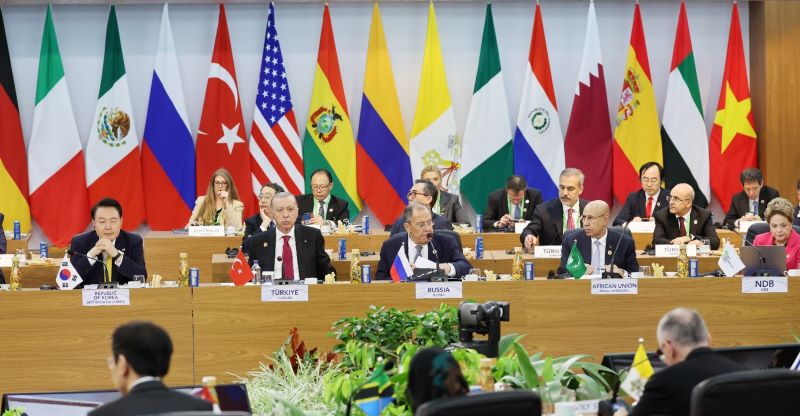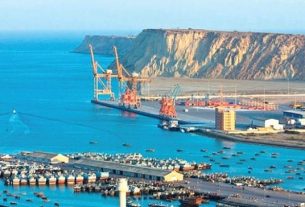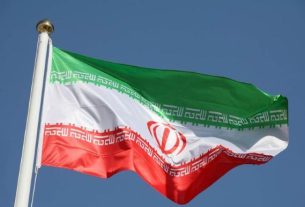RIO DE JANEIRO — The G20 leaders, meeting in Brazil for their annual summit, issued a joint declaration on Tuesday calling for a “comprehensive” ceasefire in Gaza and Lebanon, while also endorsing all “constructive” efforts aimed at bringing a lasting peace to the ongoing Russia-Ukraine war. The summit, which began on Monday, saw leaders express deep concern over the escalating humanitarian crisis in Gaza and Lebanon, where conflicts have displaced millions and led to widespread suffering.
The G20’s call for a ceasefire comes as Israel’s war on Gaza, now in its second year, has killed more than 43,900 people and injured nearly 104,000. The declaration emphasized the urgent need for humanitarian aid to flow freely into the region and urged the protection of civilians, as well as the lifting of all barriers to aid. The leaders also called for conditions that would allow citizens in both Gaza and Lebanon to return safely to their homes.
Israel’s military actions in Gaza, described by some critics as genocidal, have prompted global calls for accountability, with a case now underway at the International Court of Justice over alleged violations of international law. The G20 statement underscored the Palestinian right to self-determination and reiterated support for the two-state solution, where Israel and a Palestinian state would coexist peacefully within secure and recognized borders, in line with international law and United Nations resolutions.
The summit also marked a significant moment in the context of the Russia-Ukraine conflict, which has entered its 1,000th day. While the G20 leaders acknowledged the severe human toll of the war, the ripple effects on global food and energy security, and the broader economic disruptions, they reaffirmed their support for all diplomatic initiatives aimed at achieving a “comprehensive, just, and durable” peace. The declaration specifically endorsed efforts to uphold the principles of the UN Charter and promote peaceful relations between nations.
Climate Change and Global Cooperation
The G20 leaders also tackled the urgent issue of climate change, with a recognition that the crisis disproportionately affects the world’s poorest and most vulnerable populations. In a statement, they committed to addressing the challenges of climate change through strengthened international cooperation and political leadership. The group emphasized the role of the G20 in fostering collaborative solutions to mitigate the climate crisis, highlighting the importance of political will and coordinated action to protect the environment.
UN Security Council Reform
In another key development, the G20 leaders called for comprehensive reforms to the United Nations Security Council, urging a more inclusive representation of regions and groups that are currently underrepresented. Specifically, they highlighted the need for greater representation from Africa, Latin America, Asia-Pacific, and the Caribbean. The declaration pledged to reform the Security Council to make it more representative, effective, efficient, and transparent, in line with the challenges and demands of the 21st century.
The G20 also reaffirmed its commitment to advancing a world free of nuclear weapons, underscoring the importance of disarmament in addressing global security challenges. As geopolitical tensions rise, especially in the wake of Russia’s nuclear threats over its war in Ukraine, the call for a nuclear-free world has taken on added significance.
Ongoing Global Challenges
As world leaders gather in Rio, the summit underscores the growing urgency of addressing global crises. From the wars in Gaza and Ukraine to the ongoing climate emergency, the international community faces a complex set of challenges requiring coordinated action and long-term solutions. The G20 leaders’ call for greater cooperation, particularly in terms of humanitarian assistance, peacebuilding, and climate action, reflects the high stakes involved in creating a more stable and equitable global order.
The discussions and agreements made during this summit will likely shape international policy for years to come, particularly in areas where global tensions remain high and the need for diplomacy and reform is paramount.





